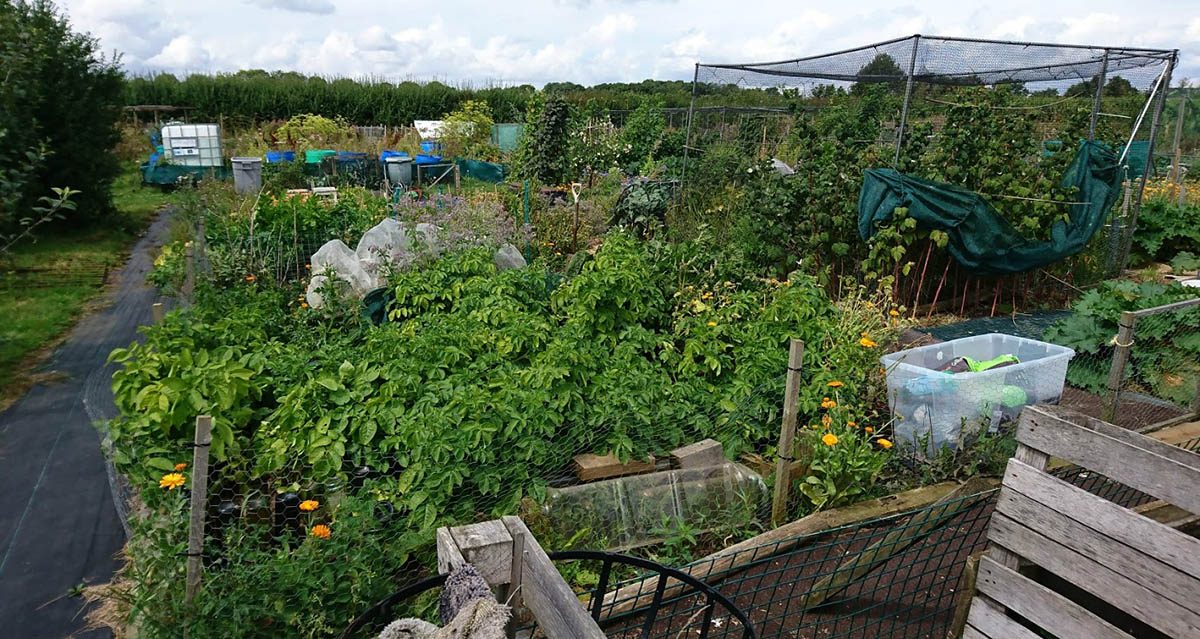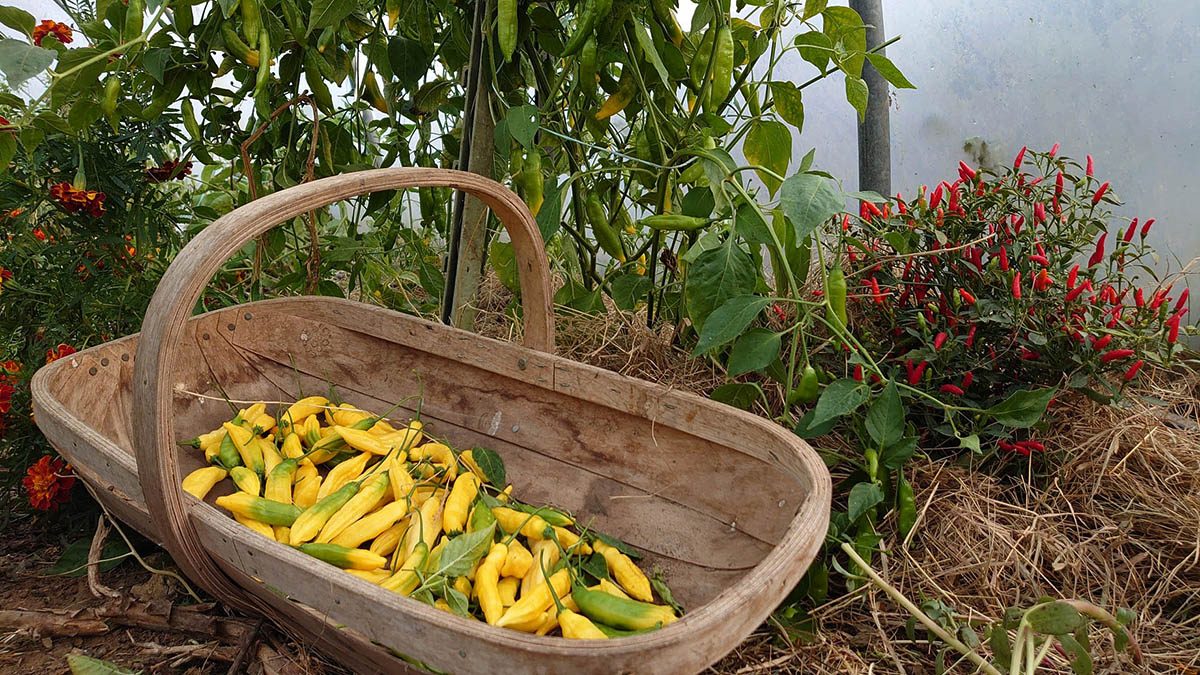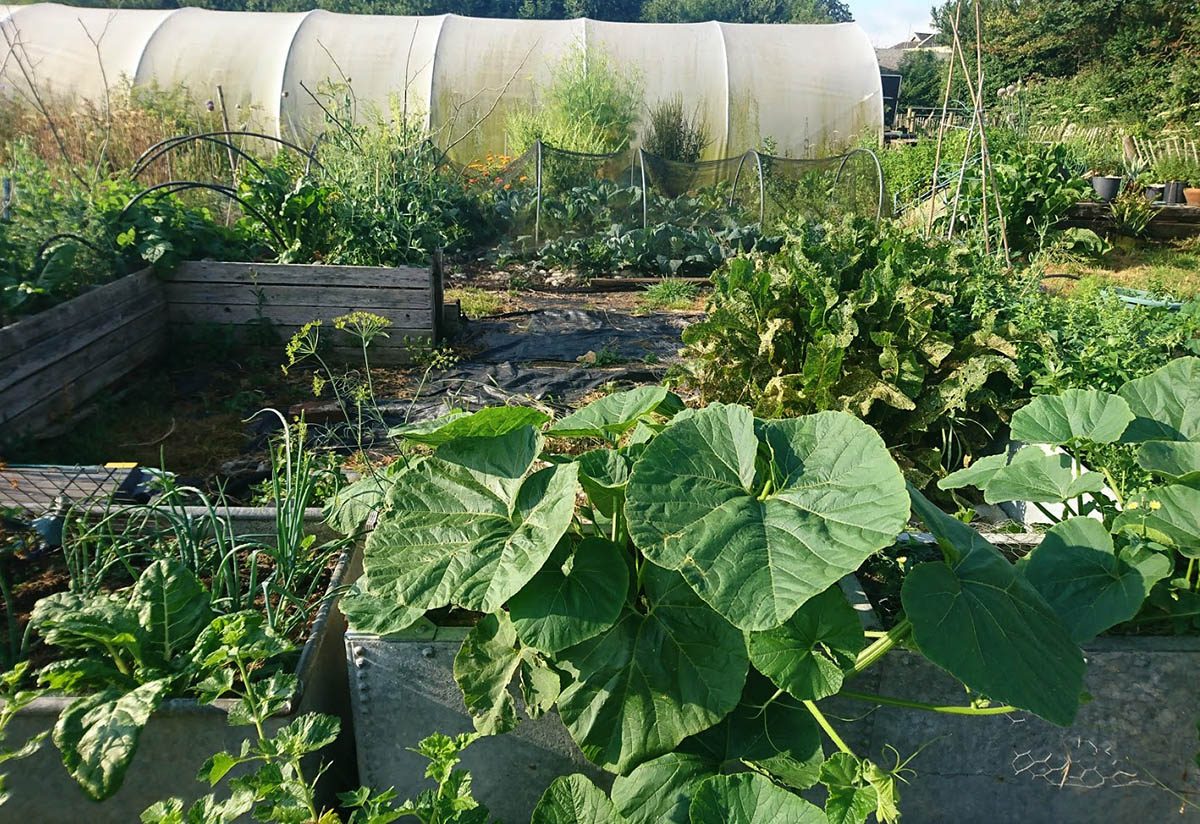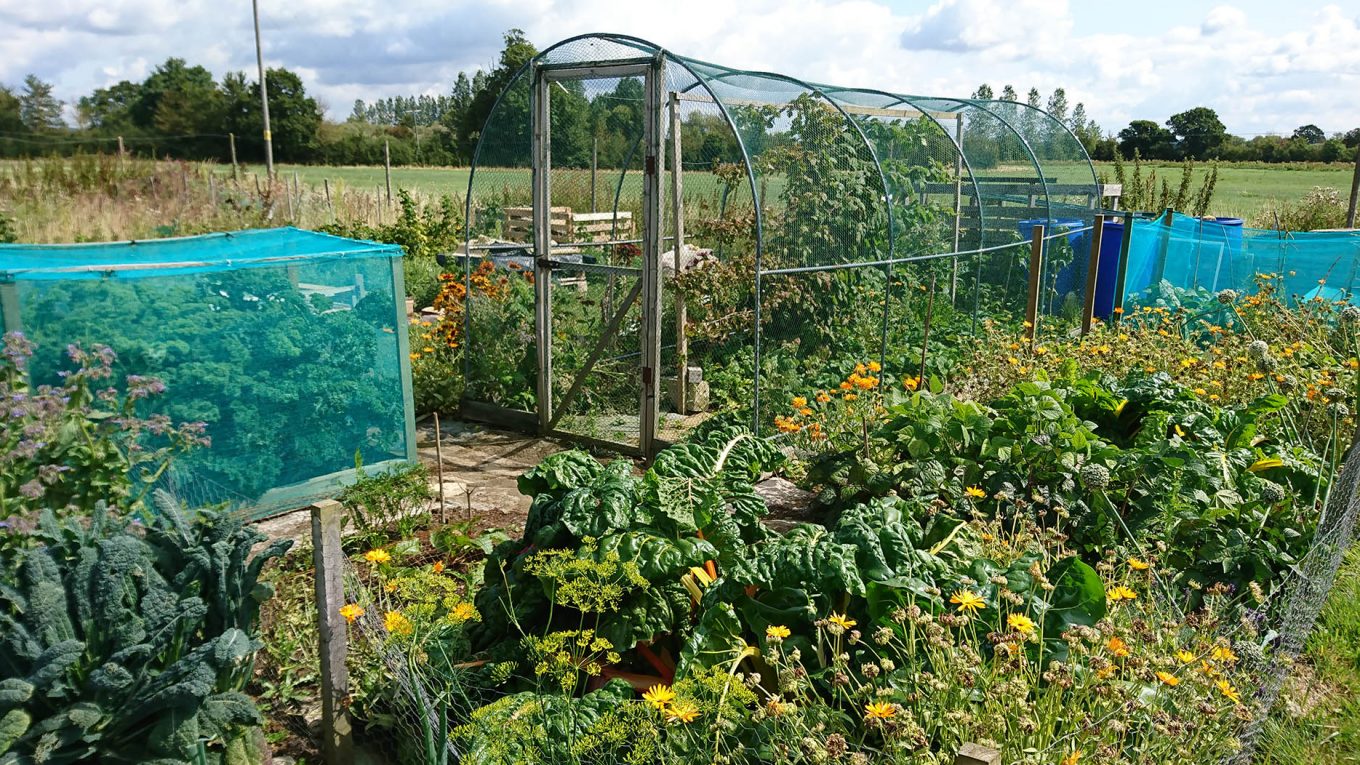The allotments 2019 – successes and failures
It’s the time of year when the allotmenteers at Empire Farm are planning the year ahead, seed catalogues are out and planting plans in preparation. Like much of the country, the weather has been very wetover the last few months, so there’s not been much activity, other than a bit of harvesting for Christmas lunch. What is interesting is that the no-dig plots have fared well and there is little standing water.

Allotmenteer Liz Liddle keeps a brilliant plot diary and here are some of her successes in 2019
- A huge 5.5 lb red cabbage (Langedijker Bewaar 2 From Tamar Organics ), most of which went into pickling jars
- Cabbage (Cour di Blue Grosso or Bulls Heart from Organic Gardening ) formed really good hearty pointy ones, nice and crisp when steamed
- Dwarf beans Compass (Organic Gardening) and Domino (Organic Gardening) kept on coming, nice compact and tasty. Climbing green beans (Cobra from Tamar) did well but I planted too many. I prefer them small, but couldn’t keep up with them, so froze a lot
- Potatoes – huge specimens, not sure what variety as they were chitted by accident from last year’s crop, so most likely Marfona. Each plant had at least one really big potato and lots of small ones. No blight at all.
- Onions did well, although the red onions (Red Baron from Tamar) started to go to seed during the dry spell, so not keeping too well. Shallots were really good, and pleasing that they were my own stock from those kept last year
- Parsnips (Tender and True ) had good germination, producing really big specimens and difficult to get out of the soil!
- Broad beans had a good crop and I actually succeeded in getting a succession by leaving three to four weeks between sowings
- Perpetual spinach, the fall back veg. I never managed to sow them thinly enough, so early thinnings were a bit of a waste, although they were always used
- Turnips (White globe from Organic Gardening ) germinated quickly and well. They were tasty when small and I managed a succession
- Brussels sprouts. The seed came from the Soil Association stand at Yarlington Fair, and they formed nicely, but there was a wide variety between plants as to size and compactness of sprouts
- Leeks (Musselburgh from Organic Gardening) Planted closer together than usual which seemed to help the plants to grow tall and straight
- Lettuce (Saladin) I had too many at once!
- Jerusalem Artichokes grew prolifically but got blown over mid-October. The first lot to be dug up were a good size and knobbly. They were good roasted and made a lovely earthy soup. I’ve cut growth back to stop more wind damage.
- Of the flowers, self-seeded nasturtiums were prolific and with huge variety of colours. There were loads of self-seeded marigolds too. In 2018 I grew white cosmos, cornflower and poppy (all from Tamar Organics) and saved seed for 2019.
Disappointments
- Kohl rabi (Azur Star) too many ready at once and a lot split during the dry weather. They looked attractive, but were not much good when cooked
- Courgettes – I used all seed from last year’s crop and must have got some cross pollination as some courgettes resembled gourds!
- Peas (Kelvedon Wonder) and sugar snap (Lusaka). I find they are always poor as I never seem to keep rats and voles off them. I always support the plants but only get one picking.
- Fennel (Romanesco) ran to seed in dry spell and didn’t form bulbs but the foliage attracted bugs for birds and I aim to collect seeds
- Beetroot (Bolthardy) had poor germination and suffered during the dry spell so I should have watered more
Liz says: “For 2020 I am aiming for better succession with climbing beans and carrots. I want to try growing cauliflowers which I have never tried before and I am hoping to make small wildlife pond as I could do with some frogs to help with the slugs, although they have not been much in evidence this year. There seemed to be fewer voles than usual thanks to the barn owls. I found several owl pellets as evidence of their presence.”
Particular highlights on my own plot included
- Lemon drop chillis which I bought as plug plants from Organic Gardening . They were prolific, albeit a little late and have been used to make some wicked chilli jam.

- Agretti was grown in the polytunnel from saved seed, and it was also prolific, producing fresh shoots for the entire summer.
- Outdoor-grown Roma tomatoes were laden with fruits (seed from Brown Envelope Seeds)
- The re-purposed farm troughs and pallets were planted up with veg and there were loads of chard, celeriac, climbing French beans (Soissons), strawberry spinach, along with cut and come again salad leaves including red frills mustard, summer purslane and, pleasingly, all from saved seed.

Organic inspection
All the allotmenteers have to submit their records for the farm’s annual organic inspection to ensure standards have been upheld. Every allotmenteer must buy organic seeds, bulbs and tubers etc, make sure that certified organic composts are used, and that nothing chemical goes on the plot, such as slug killer and aphid sprays, unless certified organic. The inspector wants to see a planting plan for each plot showing the rotations and all the seed packets or receipts to prove that certified seeds were used.
Where we get our seed
There tends to be a restricted selection of certified organic seeds. Most of our allotmenteers tend to buy their seed from with Organic Gardening Catalogue and Tamar Organics. I have used Brown Envelope Seeds in Ireland for some more unusual seeds. Plug plants are bought from Organic Gardening Catalogue or Organic Plants. Other organic seed sources include the Seed Co-operative https://seedcooperative.org.uk/ Seed parade www.seedparade.co.uk and Vital Seeds (https://vitalseeds.co.uk)
Of course, the best sustainable approach is to save seed and most of the allotmenteers save some seed and swap with their neighbours.




